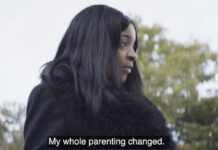The American Academy of Pediatrics has recommended autism screening in toddlers since 2007, despite a lack of evidence for better outcomes in screened children. Now, a new study has revealed that autism screening in toddlers has an incredibly low predictive value and likely results in a large number of false positives.
 The study, led by Paul S. Carbone and published in Pediatrics, found that the Modified Checklist for Autism in Toddlers (M-CHAT) screening measure has a 17.8% positive predictive value.
The study, led by Paul S. Carbone and published in Pediatrics, found that the Modified Checklist for Autism in Toddlers (M-CHAT) screening measure has a 17.8% positive predictive value.
That means that for every 100 toddlers who screen positive for autism spectrum disorder (ASD), only about 18 of them will go on to receive a diagnosis. The other 82 toddlers will be referred out for further assessment, told that they “may” have ASD, and potentially be exposed to drugs such as antipsychotics (often used for behavioral control in children with autism), all without even meeting the criteria for an ASD diagnosis.
Additionally, the study found that the M-CHAT’s sensitivity was 33.1%. That means that in the subgroup of toddlers who will go on to receive a diagnosis of ASD, the test was able to identify 33 out of every 100 correctly. The other 67% are false negatives—children who screen negative but do meet the criteria for a diagnosis of ASD.
So if your toddler screens positive for ASD on the M-CHAT, the overwhelming likelihood is that they do not actually meet the criteria for ASD (82%). Additionally, if your child actually did have a diagnosis of ASD, the overwhelming likelihood is that they would screen negative for ASD on the M-CHAT (67%).
Despite this, the authors insist that autism screening is helpful. “Children who screened positive were more likely to be diagnosed with autism and were diagnosed earlier,” writes Carbone and his co-authors.
Of course, this is tautological: children who were identified by a test as having autism were more likely to be diagnosed with ASD. But that could be harmful if those diagnoses were also false positives—children who should not have received the diagnosis but were given it anyway because the test wrongly suggested it.
In the current study, Carbone and his co-authors looked at the screening data from 20 clinics. A total of 36,233 toddlers were part of the study. Doctors screened 73% of the children, and 1.4% later received a diagnosis of ASD.
Screening children for psychiatric disorders can have harmful effects. For instance, many of the criteria for psychiatric disorders are quite subjective, and if a child screens positive (even if the test is wrong), a clinician may decide to err on the side of providing a diagnosis for the child when looking at ambiguous results.
The perils of overdiagnosis due to depression screening in children have been reported by researchers in several other instances. For instance, it can lead to children being unnecessarily exposed to the harms of psychiatric medications.
According to researchers writing in JAMA earlier this year, falsely being told you have a psychiatric disorder can lead to emotional distress and anxiety, the adverse effects of unnecessary treatments, and the excessive costs of further testing and visits to the doctor.
Indeed, those researchers argued that “The diversion of health care resources and attention to treat those with mild disease is threatening the viability of health care systems worldwide.”
****
Carbone PS, Campbell K, Wilkes J, et al. (2020). Primary care autism screening and later autism diagnosis. Pediatrics, 146(2), e20192314 (Link)















Thank you Peter.
I’m not sure which psychiatrists can possibly suggest and prescribe drugs to children, unless
something is indeed gravely wrong with these psychiatrists. And yes, there is definitely something wrong
with adults who drug children with chemicals.
And we have all these young teachers who were raised with the BS of psychiatry, either at home, from their peers or school..all these young parents and the information is simply not getting out fast enough.
Perhaps it is time for another book, by someone. Perhaps one that is free online, to be able to be accessed by poor parents.
We are living at a time where it is time to get power back, yet we stand by idle as the kids get poisoned by pretend doctors who hate people.
Does anyone at the drug labs have a consciousness? As they are packing the pills? Nope, it’s a living. Just like packing smokes into little boxes.
Well done psychiatry. You should be proud, real men and women, to be admired as you walk around with that guilty sheepish look about you, pretending you are “ok”.
Report comment
I work with teens and young adults with autism diagnosises. I estimate at least 1/3 of them to be complete bullshit. As in no or barely any autistic traits whatsoever. Often times it is parents who have severe problems themselves, mistreat their kids and then seek a diagnosis, when the kids behavioural problems are actually caused by their own abuse. (Psyhiatrist assesment) ADOS right on the cutoff with a way higher (parental assesment) ADI-R is more common than not. Some of them have done a (self assesment) AQ, none of them qualified for autism on that.
Report comment
beokay, It is very disturbing what is happening. Adults were showing the results of lobotomies and now the drugs in most negative results, leading to physical suffering for families. So there is too much proof because adults can talk about it, so psychiatry grabs children, because if you drug a child, no one knows that the damages are from chemicals do they.
People like to talk about psychiatry as having that stained history, as if it is something from the past, yet I might say they are worse than ever.
When a man has absolutely no conscience and drugs kids brains and bodies, in fact sodomozing their brains, and the public stands by and does absolutely NOTHING.
Psychiatry IS the ones who are sick. I don’t know what is wrong with them, but it is a chronic sickness that has penetrated every nook.
Children are the product of society and families, they are not disordered. Parents are not perfect, neither are schools. And the blasted shrinks come to damage more, to try and make the child’s brain fit into something that others want, but it is all experimental, so horrific for our society to have engaged in.
I do hope that eventually psychiatry becomes part of an ugly history, never to be repeated again. It was built on eradicating human expression, nothing else. It was NEVER built on “illness”.
Report comment
You wrote “no one knows that the damages are from chemicals do they. “?
Yes the invisible beating that can not be proven as a violent act. When they change the name of chemical/drug to “medicine” , then no one can question the treatment. What was/is the illness the medicines are prescribed for again? What proof is there of an illness? Who is being disturbed?
You want to deprive a child of medicine? You must be ill.
You also wrote “I do hope that eventually psychiatry becomes part of an ugly history”
The trouble is those that drug children ( both parent and psychiatrist), and those that have invested a lifetime into a chemical solution to “wrong” behaviour will not want to admit they are wrong about the drugs.
Report comment
“The diversion of health care resources and attention to treat those with mild disease is threatening the viability of health care systems worldwide.”
We here at MiA all already know none of the psychiatric DSM disorders are valid diseases, including “autism,” so none of them should even be “diagnosed” any longer. Yet they still are, because they’re “too profitable” for the pediatricians et al to stop utilizing, according to a Lutheran pediatrician. Who was confronted with the medical truth, and so embarrassed she stated such.
And we know “falsely being told you have a psychiatric disorder can lead to emotional distress and anxiety, the adverse effects of unnecessary treatments, and the excessive costs of further testing and visits to the doctor,” are very detrimental to those so misdiagnosed.
But this will result in us, doing our homework, researching, and losing pretty much all respect for the medical community in general. But also resulting in the head of family medicine at the Cleveland Clinic claiming us to be a “one in a million” medical researcher, who he had teach their students that now that we all live in the ‘information age,’ sometimes the “patients know more than the doctors.’
But now we have medical Marshall law, thanks to COVID-19, a cold virus. Since those of us at MiA have destroyed the scientific validity of the “sacred symbol of psychiatry,” a disorder which has historically always been used to defame political dissidents. So a new “mysterious disease” is needed.
Anything to cover up that paternalistic, multibillion dollar child abuse covering up system run by the “mental health” workers, and their now claimed to be ‘non-essential’ pastors, mainstream medical “professionals,” and the governmental’s “social workers, huh?
Report comment
If the physician is trying to detect the causal and the life in some part of the whole is for a brief period in time showing difference of expression, then how does whole “self-correct”? To think their might be occurring multiple ways the nerves are expressing connectivity, to work around and through the problem(s) is fascinating.
Report comment
Sorry, the word “their” was misspelled. The correct word should have been “there” ? I ask this and question for there is a way I have come to realize in the richness of thinking, even about thinking, that multiple tracks wish to emerge, or the words invoked (perhaps from a certain struggle with phonetics) communicates a more nuanced reality(s) with hints of an underlying imagination trying to realize voice. So, having typed this, (how many speak as they type, to hear and make oral the message), there is a questioning occurring in the moment. Their is when used “To think their” is different from “To think there”.
To try and read carefully what is being typed, may vary if we were speaking the words in person, having a conversation, which is different from a zoom, where many can watch and “feel connected” or have learned to accept the position of the technology, the costs, and the expenditure of time into their lives.
In comment editor stance, now I realized (LOL) of either my inability to focus on “my life”, as I ended with “their lives”. How do others cast from the awareness of the self in the singular to the organizational self, of the We, the their in order to create understanding for what is called in legal terms, “standing”? Each letter seems to have a particular weight in trying to share a story; to have witnessed and experienced what was encountered in the course of medical practice needs to be placed on the agenda’s of organizations no less than what Justin Dart visualized and spoke before the Alternative Conference in Philly in the early 90’s.
Report comment
I read the abstract of the study. It is very pro-screening, even though the process produces results that are nearly useless, even in these people’s own frame of reference!
It has always been my group’s position that the ONLY purpose of screening is find “reasonable” justifications for getting more people (usually children) involved in the “mental health” system. This study confirms this for M-CHAT. The study authors are totally fine with continuing to use M-CHAT because it continues to result in more customers for their operation.
I hope this is in some way persuasive in my argument that the current operation is basically a creation of criminal personalities.
Report comment
Peter Simons, I am a HUGE admirer of your work, and there is so much of great interest in this article. I would like to point out some things I wish had been included — any chance it could be added?. It goes like this: Nowhere in the article is it mentioned that, like all DSM diagnoses, “Autism” has no scientific validation, so it should simply never be used. Instead, people trying to help a child or adult who is struggling (or who has been identified as “a problem”) should carefully try to get to know as much as possible about the person, who considers the person problematic, does the person consider themselves to need help and if so, what kind of help, what HAS been helpful (if anything) and what HAS made things worse, etc. etc.
Another thing is about something you wrote, which was, “for every 100 toddlers who screen positive for autism spectrum disorder (ASD), only about 18 of them will go on to receive a diagnosis. The other 82 toddlers will be referred out for further assessment, told that they “may” have ASD, and potentially be exposed to drugs such as antipsychotics (often used for behavioral control in children with autism), all without even meeting the criteria for an ASD diagnosis.” That helps reify “Autism Spectrum Disorder,” which also is not a scientifically supported category. That quotation does, however, go a long way toward showing how pointless the whole endeavor is — that is, most of the toddlers who appear to have “Autism Spectrum Disorder” on the screening instrument never even get the ASD diagnosis, but the whole endeavor is also dangerous, because it greases the skids, getting huge numbers of kids into the traditional mental health system, where they may miraculously get a helpful therapist and not get put on harmful drugs but most likely will suffer great harm.
Report comment
” but the whole endeavor is also dangerous, because it greases the skids, getting huge numbers of kids into the traditional mental health system, where they may miraculously get a helpful therapist and not get put on harmful drugs but most likely will suffer great harm.”
Thanks for this,
Paula that is the most beneficial for parents to know, how not to grease the skids. Most parents are so vulnerable and have no clue what idiots they might be taking their kids to. It can be very tricky to find someone wise that is being paid to be wise and sensitive. SO many wise and sensitive people who walk among us, who could fulfill the actual jobs of therapist. One is lucky to meet some of them.
I sure hope more people pass on MIA site to parents, for education. For their young and their tweens and teens.
And I agree, I love Peter’s work and admire him a lot! So thank you again Peter.
Report comment
I have followed this web page off and on for its perspective and also as a check on mental health practices that follow a herd mentality. But I never registered before. But I felt to finally do so because I was aghast at the article regarding Autism screening. But not because I was disturbed about the high false positive rate- I knew that already as a 20 year veteran of Autism evaluation, but because of the article GETTING IT WRONG about screening. The reason for the high false positive rate in Autism screening for infants and toddlers is to avoid False negatives so that a child does not receive an actual evaluation for the possibility of Autism. I did several hundred screenings the last few years using the M-CHAT and a few others. Most often this was done as a precaution with the parent (s) fully apprised of this being done and only with their permission. So let me make this simple for readers. A positive screen is not a diagnosis. And it even states in the M-CHAT material that the screener will have lots of false positives but that most children will not get an Autism diagnosis. There is much to admire from Mad in America. But this article is not one. This is Assessment 1.0 information. The real concern I have is providers who are insensitive in how they handle the screening process such as not skillfully helping parents with their concerns and worries. But to screen children who show some delay and peculiar behaviors just as a precaution that they may have a serious condition? Lastly, the title of the article suggests inaccuracy when the screening process does not claim to be accurate- its just 20 items- but that it helps to guide next steps.
Report comment
You believe, then, that people in the mental health system have the best interests of children in mind?
Report comment